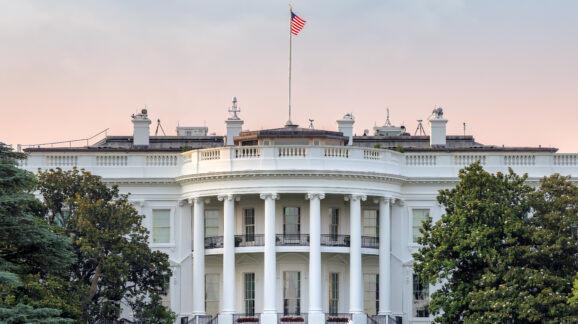There are two main areas in which Congress can enact meaningful reform. The first is to rein in regulatory guidance documents, which we refer to as “regulatory dark matter,” whereby agencies regulate through Federal Register notices, guidance documents, and other means outside standard rulemaking procedure. The second is to enact a series of reforms to increase agency transparency and accountability of all regulation and guidance. These include annual regulatory report cards for rulemaking agencies and regulatory cost estimates from the Office of Management and Budget for more than just a small subset of rules.
In 2019, President Trump signed two executive orders aimed at stopping the practice of agencies using guidance documents to effectively implement policy without going through the legally required notice and comment process.
Featured Posts

Blog
The year the red tape died? Trump’s 2025 rule count hits historic lows
At the halfway point of 2025, the federal regulatory machinery is running at an unprecedented crawl. That’s good news. As tracked annually in my…

Blog
Trump executive order establishing a portal for regulatory dark matter
Even at the insistence of Congress in 2018, 46 federal agencies could only uncover only about 13,000 of their guidance documents and policy statements…

Blog
The week in regulations: Nuclear fees and unintentional otter injuries
The possible war with Iran did not escalate. The reconciliation bill debate continued, as did presidential pressure on the Federal Reserve to lower rates. U.S.
Search Posts
News Release
House Oversight and Accountability Committee advances pro-transparency ALERT Act
The House Oversight and Accountability Committee today advanced H.R. 262, the All Economic Regulations are Transparent (ALERT) Act sponsored by Rep. Bob Good (R-VA).
Blog
Use the Congressional Review Act to strike rules not reported to Congress and GAO
Significant attention is likely to turn to Joe Biden’s ambitious regulatory agenda before summertime. That’s because rules the administration finalizes “late”—during the last 60 in-session…
Blog
This week in ridiculous regulations: address labels and consumer reviews
Yet another federal shutdown crisis was averted, this time until March. The Senate Environment and Public Works Committee marked up the PROVE It Act,…
Blog
This week in ridiculous regulations: Independent contractors and emergency haddock action
Happy MLK-government snow shutdown days, everyone. There was more shutdown drama last week. The US launched strikes against the Houthis, one of three factions trying…
Letters
NTU Coalition Letter on Important Needed Tax Reforms
Dear Majority Leader Schumer, Speaker Johnson, Minority Leader McConnell and Minority Leader Jeffries, On behalf of the undersigned organizations who represent the interests of taxpayers,…
Blog
Unconstitutionality Index going into 2024: 46 rules for every law
The Biden’s administration’s 3,018 rules and regulations of 2023 is fairly typical of agency output these days. But while rule counts remain relatively stable,…
Staff & Scholars

Clyde Wayne Crews
Fred L. Smith Fellow in Regulatory Studies
- Business and Government
- Consumer Freedom
- Deregulation

Ryan Young
Senior Economist
- Antitrust
- Business and Government
- Regulatory Reform

Fred L. Smith, Jr.
Founder; Chairman Emeritus
- Automobiles and Roads
- Aviation
- Business and Government

Sam Kazman
Counsel Emeritus
- Antitrust
- Automobiles and Roads
- Banking and Finance

Marlo Lewis, Jr.
Senior Fellow
- Climate
- Energy
- Energy and Environment